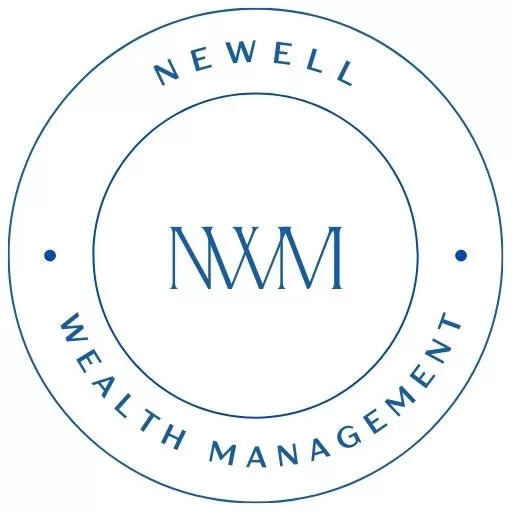What Is a Trust and Do You Need One?

When it comes to estate planning, there are several key documents that most people use to set up the transition for when they pass or become incapacitated. One of the primary documents many people use is called a trust. While there can still be challenges with settling an estate, having the proper documents in place helps make the legal process as straightforward as possible.
What Is a Trust?
A trust is, in essence, a document that helps with the estate planning process. It’s a legal document, a packet of words that creates its own entity. Think of it like a business strategy or a guiding document on how things should operate, regardless of human input, if you pass away or cannot make decisions.
Trusts are set up to guide how the grantor (the person creating the trust) wants things to happen upon their passing or incapacitation. It may be as simple as the “I Love You Trust” that goes to your spouse, then passes to your children, their children, and so on. A trust can also cover more complex situations, especially if there are second marriages, estranged children, or spendthrift children.

Revocable or Irrevocable
A key element to a trust is whether it is revocable or irrevocable. It’s essential to understand the difference.
Revocable
A revocable trust means it can be changed. This type is sometimes referred to as a living trust because changes will happen over time during your life. It’s advisable to renew your estate planning documents every three to five years since life can and does change.
You may have intended to leave your Aunt Susie money, but she has passed away, and you need to update your trust. Maybe your children are grown and married, so you need to update your trust accordingly.
Whatever changes may happen, a revocable trust allows you to go in and update your wishes at any time.
Irrevocable
This type of trust is set in stone once you create it. It is signed, sealed, and delivered. You cannot make any changes to that document.
Generally, the purpose of an irrevocable trust is for tax planning for people with higher net worth. These people are in the $10-12 million or more net worth range. There are special tax considerations associated with irrevocable trusts both while living and upon your passing that may come into play.
Knowing whether a trust is revocable or irrevocable is critical as it affects your ability to make changes on an ongoing basis.
Common Misconceptions
There are several common misconceptions when it comes to creating a trust, including how much money one needs to be able to create a trust and tax savings.
Often, it’s the average person creating a trust. Revocable trusts are not usually created for tax planning purposes. The primary reason for creating a trust is to help avoid the probate process and make things simple upon passing.
Taxes
People often think a revocable trust will save on taxes. The truth is that it doesn’t save anything on taxes. In fact, if done improperly, it can cause taxes, especially regarding retirement accounts. Naming a trust as a beneficiary on a retirement account must be done carefully.
Trusts Are For Millionaires
Many people think you have to be ultra-wealthy to set up a trust. Millionaires should have a trust, but even those with more modest means should consider it. The average person often has things like
- A home
- 401k
- Life insurance policy
- Bank accounts
Even if you don’t have substantial dollar amounts in your accounts, it’s still prudent to consider using a revocable trust. Remember, the main benefit of a trust is to avoid probate. Probate can be a painful and expensive process for your beneficiaries, even without a ton of assets.
Probate
Probate is the process where the judicial system wants to ensure your wishes are upheld when you pass. People often confuse having a trust with having a will, but there are some key differences.
Wills
A will comes into play during the probate process. The courts will review your will and all of your assets. Attorneys are usually involved. It’s a public process where a legal notice is published to inform creditors who can make claims against your assets. Having a will does not avoid this part of the estate settlement process.
Trusts
Again, one of the main benefits of a trust is that it avoids the probate process. Attorneys should still help, but it will be a lot smoother and less public settlement process. A trust allows you to shift assets into the name of the trust or to other beneficiaries according to how the trust is outlined.
Trusts can also be set up to help a continued trust, where the money can be held aside. This is valuable if you have children that you’re worried about because they don’t handle money well or are prone to making bad financial decisions.
The trust can be set up to help protect them for a period of time. In this case, you must choose a trustee to help manage that process. Trustees can be individuals or, in some cases, corporations.
Decide What’s Best for You
Estate planning doesn’t have to be complicated. Knowing the difference between a will and a trust is a solid foundation. Now that you understand what a trust is and how it can help the probate process, talk to your financial team to find out if a trust is worth considering.
As an experienced financial planner, I frequently work with these types of things. I’m happy to chat with you about your situation.
We can meet virtually or in person if you live in the Central Florida area. Please email me at kyle.newell@newellwm.com, call/text at 407.337.7128, or schedule a meeting at Schedule – Newell Wealth Management (newellwm.com)
Important Information
Newell Wealth Management, LLC (“NWM”) is a registered investment advisor offering advisory services in the State of FL and in other jurisdictions where exempted. Registration does not imply a certain level of skill or training. The presence of this website on the Internet shall not be directly or indirectly interpreted as a solicitation of investment advisory services to persons of another jurisdiction unless otherwise permitted by statute. Follow-up or individualized responses to consumers in a particular state by NWM in the rendering of personalized investment advice for compensation shall not be made without our first complying with jurisdiction requirements or pursuant an applicable state exemption.
All written content on this site is for information purposes only and is not intended to provide specific advice or recommendations for any individual. Opinions expressed herein are solely those of NWM, unless otherwise specifically cited. Kyle Newell and NWM are neither an attorney nor an accountant, and no portion of this website content should be interpreted as legal, accounting or tax advice. Material presented is believed to be from reliable sources and no representations are made by our firm as to other parties’ informational accuracy or completeness. There is no assurance that the views or strategies discussed are suitable for all investors or will yield positive outcomes. Investment involves risks including possible loss of principal and unless otherwise stated, are not guaranteed. Any economic forecasts set forth may not develop as predicted and are subject to change. All information or ideas provided should be discussed in detail with an advisor, accountant or legal counsel prior to implementation.
